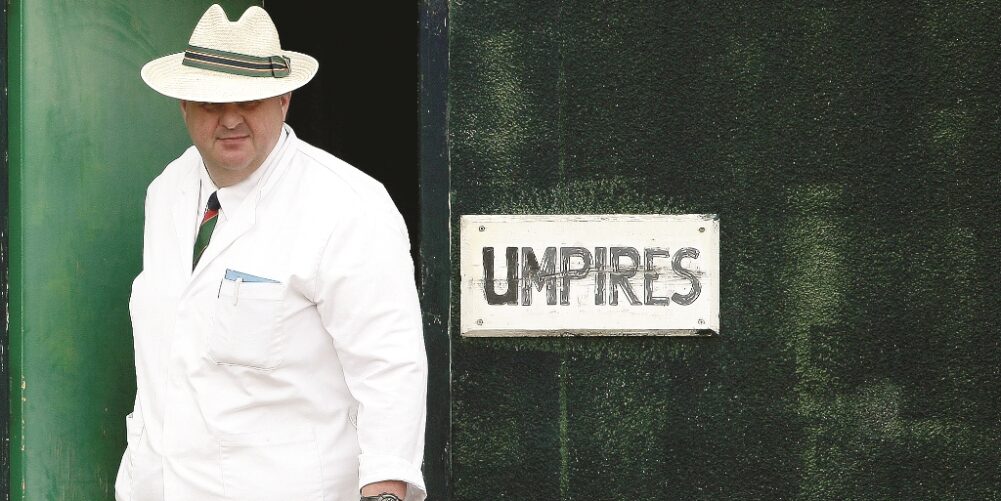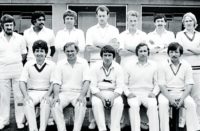By Richard Edwards
CLUB cricket kicks off in large parts of the country this weekend – but kick-offs of another kind will be weighing on the minds of the umpires and officials.
Law 42, which covers player behaviour at all but international level across the world, will come into force in English club cricket this season.
And The Cricket Paper can reveal that there are fears it could lead to chaos.
One league chief told us he believed the law could even result in on-field punch-ups if umpires are too strict.
Under the new rules, umpires have the power to issue five-run penalties and even send players off for a proportion of an innings.
And while most agree that something had to be done to arrest the decline in standards of behaviour in leagues across the country, there are concerns that some umpires might go too far in the issuing of penalties, potentially sparking brawls that would normally be the preserve of Sunday League football.
Some leagues, most notably Hampshire’s Southern League, have opted out of the law this season, preferring to see how it unfolds elsewhere before implementing it.
In a great many other leagues, meanwhile, Law 42 will only be in force when neutral or quailfied umpires are officiating. In the lower leagues, where players are expected to officiate instead of putting their feet up on the boundary, Law 42 is unlikely to be exercised at all.
That’s an eminently sensible compromise and one that lessens the likelihood of players taking matters into their own hands when given the power of dismissing a player from the field of play.
There is, though, still a danger that some umpires might be keen to exercise their new powers at the earliest available opportunity.
“There has been an increase in disciplinary matters and incidents requiring action,” says Simon Prodger, managing director of the National Cricket Conference.
“You could argue that a lot of that is because we are becoming more effective and more determined across the board to police those environments.”
That’s certainly the argument of Chris West, a man who wears many hats in the English club game.
Speaking in his capacity as president of the North Yorkshire and South Durham League he tells TCP that the disciplinary process his league implemented some time ago has already brought about improvements in player behaviour.
“Obviously the MCC has seen there’s an issue because umpires are being lost to the game and players are as well,” he says.
“If a youngster is on the receiving end of some sledging then their parents might want to take them out of the sport, or they themselves might be put off playing so it is a very important area. No-one is denying that.
“We don’t want to sanitise the whole thing, but it’s a family game and there are losers if behaviour declines. But we feel our system is a really good one and we’re really happy with it.
“And the new MCC laws do have the potential to put an umpire in a conflict situation on the field of play.”
Fraser Stewart, the MCC’s laws manager, however, believes the new laws offer the recreational game the perfect opportunity to arrest the decline in player participation and improve the on-field behaviour of those involved in the sport across the country every weekend.
“The laws have been published for a year, so for the UK there has been the best part of a summer and the whole winter to train up players,” he tells TCP.
“There have been a lot of captains’ meetings where the captains have sat down and gone through the key changes. Some leagues, like the Home Counties leagues, have piloted this for the past two years as well, so they’re ahead of the game.
“The players have to realise that they have a duty to the game – and I’m talking as much to club cricketers as international cricketers here – because lower down, a great many umpires are thinking, why should I give up my Saturday for 30 quid just to put up with all this abuse?
“We know from surveys that umpires are giving up. So if players want to carry on playing cricket with neutrally appointed umpires and they want their children to do the same in a generation’s time, then the ball is in their court.”















